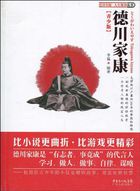But the nominalists and traditional conceptualists find matter for an inveterate quarrel in these simple facts.Full of their notion that an idea, feeling, or state of consciousness can at bottom only be aware of its own quality; and agreeing, as they both do, that such an idea or state of consciousness is a perfectly determinate, singular, and transitory thing;
they find it impossible to conceive how it should become the vehicle of a knowledge of anything permanent or universal."To know a universal, it must be universal; for like can only be known by like," etc.Unable to reconcile these incompatibles, the knower and the known, each side immolates one of them to save the other.The nominalists 'settle the hash' of the thing known by denying it to be ever a genuine universal; the conceptualists despatch the knower by denying it to be a state of mind, in the sense of being a perishing segment of thoughts' stream, consubstantial with other facts of sensibility.They invent, instead of it, as the vehicle of the knowledge of universals, an actus purus intellectûs , or an Ego, whose function is treated as quasi-miraculous and nothing if not awe-inspiring, and which it is a sort of blasphemy to approach with the intent to explain and make common, or reduce to lower terms.Invoked in the first instance as a vehicle for the knowledge of universals, the higher principle presently is made the indispensible vehicle of all thinking whatever, for, it is contended, "a universal element is present in every thought." The nominalists meanwhile, who dislike actus puros and awe-inspiring principles and despise the reverential mood, content themselves with saying that we are mistaken in supposing we ever get sight of the face of an universal;
and that what deludes us is nothing but the swarm of 'individual ideas'
which may at any time be awakend by the hearing of a name.
If we open the pages of either school, we find it impossible to tell, in all the whirl about universal and particular, when the author is talking about universals in the mind, and when about objective universals, so strangely are the two mixed together.James Ferrier, for example, is the most brilliant of anti-nominalist writers.But who is nimble-witted enough to count, in the following sentences from him, the number of times he steps from the known to the knower, and attributes to both whatever properties he finds in either one?
"To think is to pass from the singular or particular to the idea
or universal....Ideas are necessary because no thinking can take place without them.They are universal, inasmuch as they are completely divested of the particularity which characterizes all the phenomena of mere sensation.
To grasp the nature of this universality is not easy.Perhaps the best means by which this end may be compassed is by contrasting it with the particular.It is not difficult to understand that a sensation, a phenomenon of sense, is never more than the particular which it is.As such, that is, in its strict particularity, it is absolutely unthinkable.In the very act of being thought, something more than it emerges, and this something more cannot be again the particular....Ten particulars per se cannot be thought of any more than one particular can be thought of;.
..there always emerges in thought an additional something, which is the possibility of other particulars to an indefinite extent.....The indefinite additional something which they are instances of is a universal....
The idea or universal cannot possibly be pictured in the imagination, for this would at once reduce it to the particular....This inability to form any sort of picture or representation of an idea does not proceed from any imperfection or limitation of our faculties, but is a quality inherent in the very nature of intelligence.A contradiction is involved in the supposition that an idea or a universal can become the object either of sense or of the imagination.An idea is thus diametrically opposed to an image."
The nominalists, on their side, admit a quasi -universal, something which we think as if it were universal, though it is not;
and in all that they say about this something, which they explain to be 'an indefinite number of particular ideas,' the same vacillation between the subjective and the objective points of view appears.The reader never can tell whether an 'idea' spoken of is supposed to be a knower or a known.
The authors themselves do not distinguish.They want to get something in the mind which shall resemble what is out of the mind, however vaguely, and they think that when that fact is accomplished, no farther questions will be asked.James Mill writes:
"The word, man, we shall say, is first applied to an individual; it is first associated with the idea of that individual, and acquires the power of calling up the idea of him; it is next applied to another individual and acquires the power of calling up the idea of him; so of another and another, till it has become associated with an indefinite number, and has acquired the power of calling up an indefinite number of those ideas indifferently.
What happens? It does call up an indefinite number of the ideas of individuals as often as it occurs; and calling them in close connection, it forms a species of complex idea of them....It is also a fact, that when an idea becomes to a certain extent complex, from the multiplicity of the ideas it comprehends , it is of necessity indistinct;...and this indistinctness has, doubtless, been a main cause of the mystery which has appeared to belong to it....It thus appears that the word man is not a word having a very simple idea, as was the opinion of the realists;
nor a word having no idea at all, as was that of the nominalists;
but a word calling up an indefinite number of ideas, by the irresistible laws of association, and forming them into one very complex and distinct, but not therefore unintelligible, idea."
Berkeley had already said:














